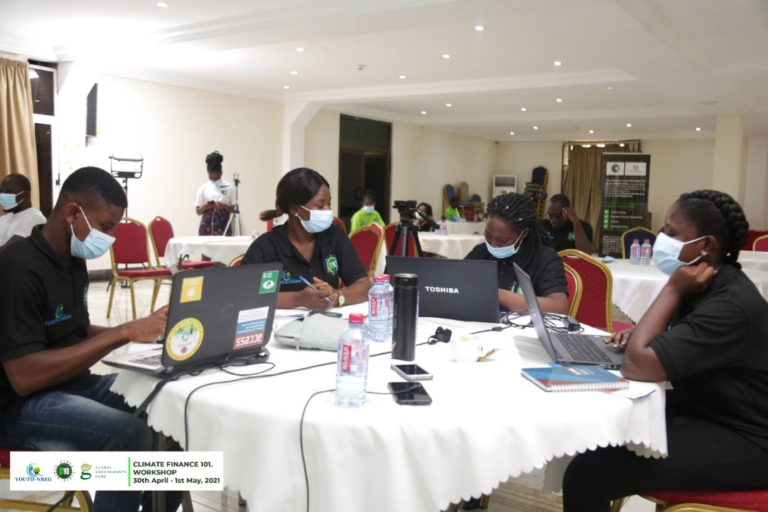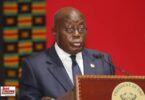Funding Climate Change Activities is Govt. Priority- Foster Gyamfi
Story by: Ishmael Barfi
For Ghana to achieve its Nationally Determined Contributions (NDCs), a Representative of the National Designated Authority (NDA) at the Ministry of Finance, Mr. Foster Gyamfi reveals that, the government of Ghana will enhance its prioritization of climate actions and funding.
For the realization of this, he entreated the youth to design business proposals to boost the existing green jobs they’ve created.
Therefore called for the mobilization of financial resources which he says is key in ensuring that Ghana addresses many of the challenges associated with the implementation of adaptation and mitigation actions.
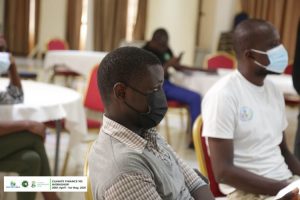
Funding Climate Change Activities is Govt. Priority- Foster Gyamfi
Mr Gyamfi made these remarks at a Climate Finance workshop organised by Strategic Youth Network’s (SYND) in Accra.
The Climate Finance workshop which forms part of SYND effort to equip young people with knowledge on climate and its related issues.
The two-day workshop broadened the selected young participants’ knowledge on climate adaptation, mitigation, and climate financing.
The two-day workshop under the theme “Climate Finance 101 under the theme “The role of young people in Climate financing”.
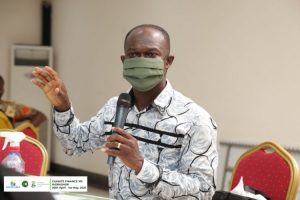
Funding Climate Change Activities is Govt. Priority- Foster Gyamfi
The workshop provided a platform to assist participants to learn the basics of global and national Climate Finance, key issues and players in the sector, campaign ideas, and among others.
Speaking to the theme, a member of SYND Policy team Maxwell Beganim pointed out that, the financial support is needed as mitigation efforts to decarbonize the economy and assist the country to achieve global temperature rise below 2 Degrees Celsius.
He also observed that “adaptation and mitigation are complementary strategies for reducing and managing the risks of climate change”.
Citing China, India, the United Kingdom, South Africa, Turkey, and Mauritania as major countries that have contributed Foreign Direct Investment (FDI) into climate financing in Ghana.
Stating that, funding for climate finance is organized roughly using the polluter pay principle from the environmental law.

SYND Executive Coordinator, Chibeze Ezekiel
“There are two ways of defining climate finance. One definition is that climate finance is the financial resources devoted to addressing climate change globally. The second definition is that climate finance is the financial flows to developing countries to assist them in addressing climate change”, he explained.
Some accredited financial mechanisms and multilaterals that provide climate funds include Global Environment Fund (GEF), Climate Investment Fund (CIF), Green Climate Fund(GCF), which is the largest multilateral climate in addition to other specially created funds like; Special Climate Change Fund (SCCF), the Least Developed Countries Fund (LDCF) and the Adaptation Fund (AF).
The funds from these institutions “seek to provide the financial resources to developing countries, LDC and Small Islands to facilitate the provision of climate finance”.
A total of 403 Climate-related projects were committed to Ghana in a sum of $776.5 US million dollars from the period of 2013 to 2017.
In 2017, out of $277 million US dollars that were given to the country, only 104 projects were disclosed to have taken place.
This pushed the speakers to rhetorically question the availability of the projects and their benefits to the vulnerable in Ghana.
This pushed the speakers to rhetorically question the availability of the projects and their benefits to the vulnerable in Ghana.
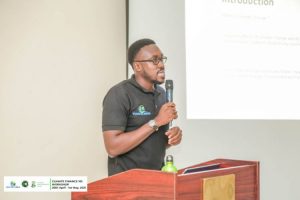
Funding Climate Change Activities is Govt. Priority- Foster Gyamfi
On the way forward to ensuring that funds received are judiciously used for the benefit of all, the Executive Coordinator of SYND Chibeze Ezekiel proposed the development of IE and C materials targeted at schools and communities in support of public education efforts.
Additionally, the tracking of Nationally Determined Contributions (NDCs) in critical areas like forestry, transportation, energy, health, infrastructure planning, waste, and early warning systems and as well as holding government accountable to deliver on commitment on proposed unconditional actions must be keenly pursued by young people.
Source: www.thenewindependentonline.com


